Musical Youth: Young People in Reggae pt.1
The SST project has always been concerned with intergenerational knowledge transmission and exchange as this is absolutely essential for the street and popular culture to stand the test of time. We are glad to introduce a series of blogs by guest author, selectress Becca Leathlean who will report on issues such as young people involvement in reggae sound systems in and outside London and beyond, the ongoing state of elder-younger relationships, pioneering female practitioners and younger LGBTQ+ sound systems. This first iteration introduces Becca’s own journey in reggae, from being a solitary record collector to selectress and broadcaster.
By Becca Leathlean
It’s a sunny May afternoon in 2023 and the Deptford Dub Club is hosting its first All-Dayer of the summer, in the garden of the Fox and Firkin pub in Lewisham, southeast London. Reggae-lovers of all varieties are enjoying the vibe. Rastafarian elders demonstrate impressive dance moves; a crowd of young people bob around in front of the stage. Families browse the craft, clothing and music stalls; kids explore the garden and bust their own moves. Errol Walker’s ‘In These Times’ floats across the garden. “Let’s get together. Unite, good friends and family,” enthuses the MC, Doc Murdoch.
Today’s DJ line-up includes Papa Scotchie, Soft Wax and Natty Nick, plus heavyweights Neville King and Ras Kayleb who will play inside later to a devoted audience of young followers. The other DJ on the bill is myself, Selector Becca, a relative newcomer doing the 3pm warm-up.
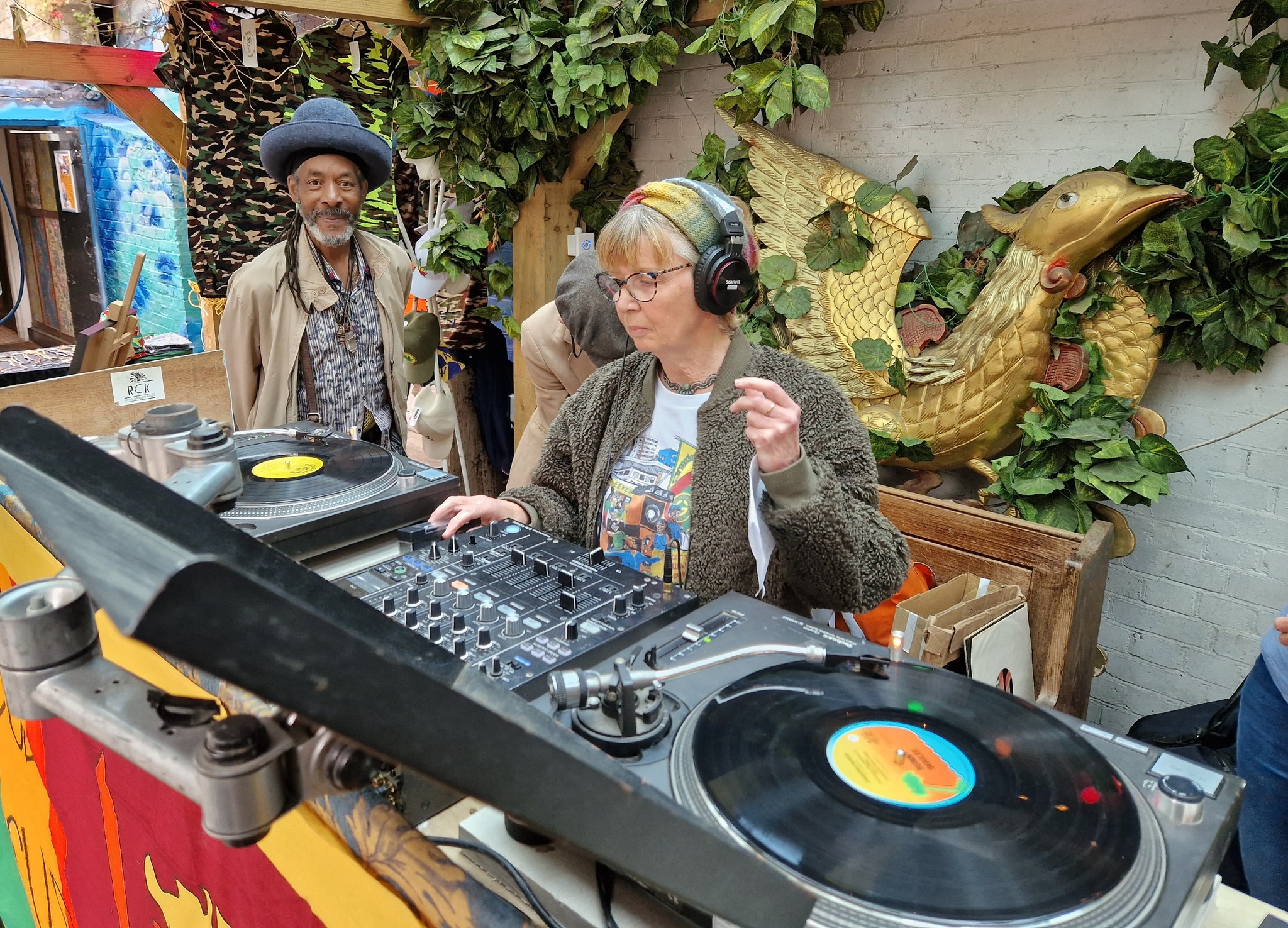
Selector Becca at DDC All-Dayer
Finding Connections
It was as a ten-year old that I heard reggae for the first time, in the summer of 1972. My expat father was home on leave from Hong Kong, visiting my mum and I in our Devon bungalow. He’d just told us that I was to be sent away to boarding school and Mum was upset. There was shouting and tears. In the midst of it, I hunkered down in front of the evening news.
What I happened to see on TV took me by surprise. In a place called Jamaica, people were dancing in the street to steel pan and reggae, and swaying off the backs of tooting lorries. It was the 10th anniversary of Jamaican Independence – and in that moment, with the row over my future raging over my head, all I wanted was to be there with them, sucked up into the television screen and transported 4700 miles to the other side of the Atlantic.
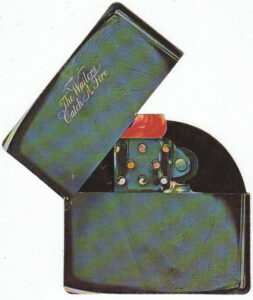
Iconic ‘Catch A Fire’ LP Zippo Lighter cover
A few years later, a classmate brought a Bob Marley album back to school after the holidays. Soon, I was buying my own reggae – Peter Tosh’s ‘Legalise It’ with the picture of him crouching in a field of ganja; the Wailers’ ‘Catch a Fire’ with the original Zippo lighter cover.
At 17, I was a student at Goldsmiths’ College in London. Reggae was all around, but my friends weren’t interested so I’d listen alone. I’d record the David Rodigan show on Saturday night and go to Record and Tape Exchange in Notting Hill Gate to buy second hand vinyl. I slowly built a good collection: Dennis Brown, Junior Delgado, Aswad, The Congos, Tappa Zukie, Big Youth, Janet Kay. Then, when I moved to a hard-to-let flat in Clapham Park Estate, the whole lot was burgled. I replaced it with insurance money, so the bulk of my current collection comes from one Virgin Megastore order, circa 1985. It has accompanied me throughout my life, growing little by little, until now – 38 years later.
Although I went to reggae concerts, I didn’t go to reggae clubs, and rarely to reggae record shops. I’d have to psych myself up to go to Daddy Kool in Soho, embarrassed to be a middle-class white woman asking for records with names such as Keith Hudson’s ‘Nuh Skin Up’. I’d dream of going to Rodigan’s club night at Gossips, but there was no way I would, by myself.
In 1989 I moved to Lewisham. By then, roots and culture music had all-but vanished under a new wave of dancehall and electric rhythms. CDs took the place of vinyl, and during my 30s I aligned with my mates and embraced trip hop, acid jazz and jazz rap. When I moved to Forest Hill in 2006, positioning my vinyl collection neatly across a wide shelf in the chimney alcove, I didn’t even have a record deck.
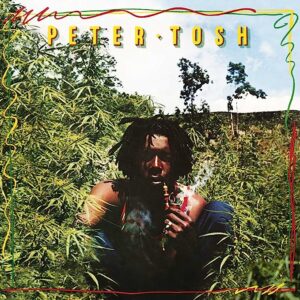
Peter Tosh’s ‘Legalise It’ LP
At first, I felt a bit lost in my new home. It spurred me to buy a second-hand record deck, which I took to a local electrical shop to be fixed. The elderly proprietor took it with a twinkle in his eye and had it ready a week later. I brought it home and put on Bob Marley’s ‘Survival’. There was that little hiss and crackle as the needle fell, and then it just sounded so good – honest, true and strong – pulling me into a good place and connecting me to a forgotten part of myself.
Reggae touches my soul. The sweet melodies and heartfelt lyrics reach something deep within, while the rhythms – sometimes gentle, sometimes militant – make me feel as if I can take on the world. But once again, it was to be a solitary passion because I still wasn’t part of a reggae crowd.
In 2016, an old friend invited me out for New Year’s Eve. I couldn’t believe it when she said we were going to the Deptford Dub Club – a roots and culture vinyl night at a local pub. There was a very diverse crowd, and I was in my element.
The Dub Club was on every month. DJs I had longed to hear in the 80s and 90s, like Moa Anbessa, would play, while regular punters included an original skinhead in braces, and a stooped older man who danced nonstop. It was as if everyone was in their own world, lost in music, and it was nice to know I was no longer alone.
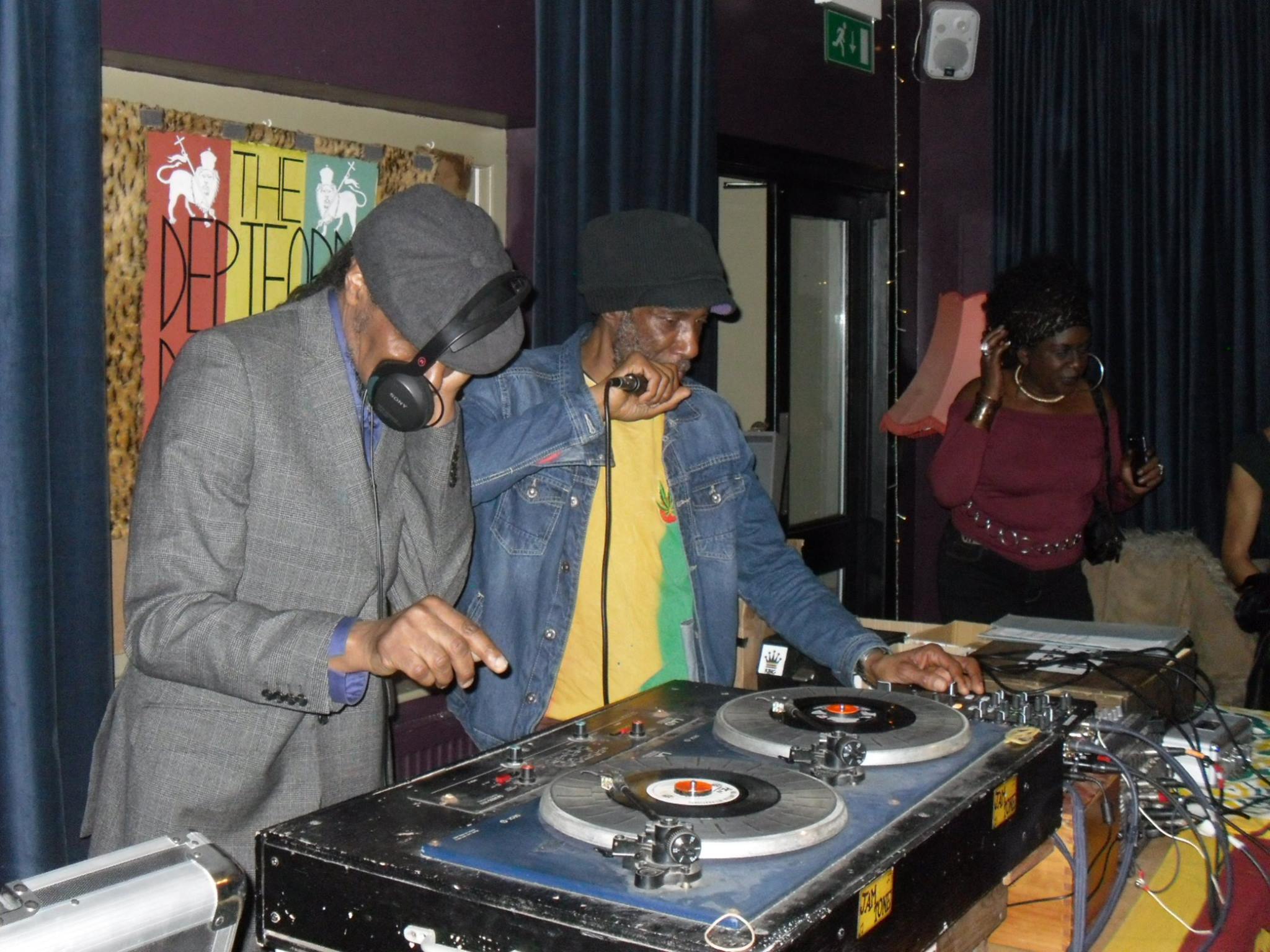
Moa Anbessa playing at Deptford Dub Club at the Duke
I moved to rural Spain in 2018, but timed my visits to London to coincide with Dub Club dates. Then, when Lockdown hit, I started compiling roots reggae playlists for friends (some of them had caught the bug at last), and began to explore the genre all over again.
In February 2022, I got a chance to DJ myself after DJ and broadcaster Debbie Golt of Outerglobe advertised for ‘womxn with a great reggae vinyl collection who would like to play a relay set, with all the help you need’ to play at her new project, Vinyl Sisters, upstairs at the Brixton Ritzy. It went better than I could have hoped and I was invited to play again the following weekend. Doors were opening, and I decided to move back to London and go through them.
I came home in July 2022 and was playing with the Vinyl Sisters two weeks later. My selection, roots reggae mixed with a little dancehall and rocksteady, provoked a series of ‘pull-ups’ – where the audience shout: “Pull up!” or “Rewind!” to make you start the song again – and plenty of fist bumps. It was fantastic to see people enjoying themselves so much. Later that summer, I played at a couple of ‘Selector Thursdays’ at Lion Vibes Record Shop in Brixton Market [1], and was amazed to see a younger crowd go completely crazy to records by Johnny Osbourne, the Congos and Lone Ranger.
Vinyl Sisters
“I started the Female DJ Reggae Relay in 2016 to provide a welcoming space for women to play,” says Debbie Golt. “The initial project died over the lockdown, but Miss Feelgood (Shirley Slattery) and I decided to re-launch it in 2021 as Vinyl Sisters, Upstairs at the Ritzy in Brixton.”
Debbie began her DJ career at Rock Against Racism gigs in the mid-70s. “There have always been women DJs, but there weren’t enough platforms for us. I thought it was important to address that,” she says. “Vinyl Sisters span a wide range of ages, and we come from a great diversity of backgrounds. We feature different DJs every month, each bringing something unique.”
With around 20 DJs in the collective, on an average night you might hear a sublime rocksteady selection from Kaya M, classic roots from Lady Issachar, ska from DJ Crystal and perhaps even a dancehall set, as recently played by Miss Fabulous – although most select from more than one reggae genre. The audience is as mixed as the DJs, men as well as women. “Something I love about Vinyl Sisters nights is how much the men in the audience love the music—they also love and respect the fact that women are running the thing,” says Kaya M.
For some, Vinyl Sisters is just the start. “Many of our women go on to DJ elsewhere,” says Debbie Golt. “It’s fabulous to see people who’d never thought of themselves as a DJ gaining the confidence to go out and become one.”
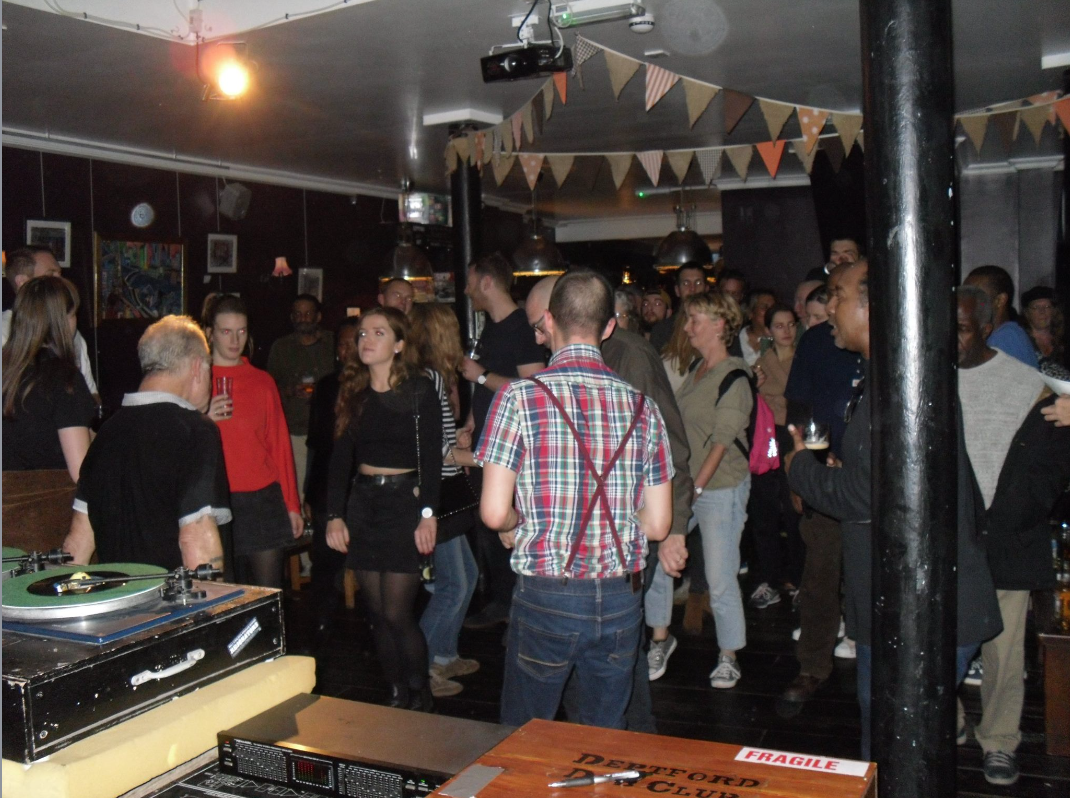
Deptford Dub Club at the Duke in Deptford
This has been true for me as, over recent months, I’ve been gravitating back to my southeast London roots. In January 2023 I had a proud moment, when I played my first set at the Deptford Dub Club. I’ve also started DJing at Heritage, a night in my local neighbourhood, where a more mature audience has been as enthusiastic as the youngsters. It feels kind of magical that while as a young woman, I wasn’t confident enough to access the reggae scene, as an older one I can share my tunes and give something back. It’s been especially nice to see the reactions of older reggae fans when I play a track that resonates.
I host a monthly show on Soul Roots Radio, too, exploring reggae from all over the world, and am learning how roots music and the Rastafari message are bringing strength and inspiration to people in just about every country on the planet. For example, there are excellent bands such as Marcus Gad and Tribe from New Caledonia; and Massagana and others in Latin America, working in long-term collaboration with the Congos’ Cedric Myton. Recently, Kawa, an excellent band from Yunnan Province in China, moved me almost to tears by showing how roots music is building resilience and faith among Chinese minority ethnic groups through combining traditional instruments and chants with a powerful reggae beat.
Throughout my first year as a reggae selector, I’ve often been surprised by the youth of many reggae music fans and sound system operators. At Lion Vibes Selector Thursdays you can regularly catch vinyl selectors as young as 18 running roots and culture tracks recorded decades before they were born, and several have built their own sound systems.
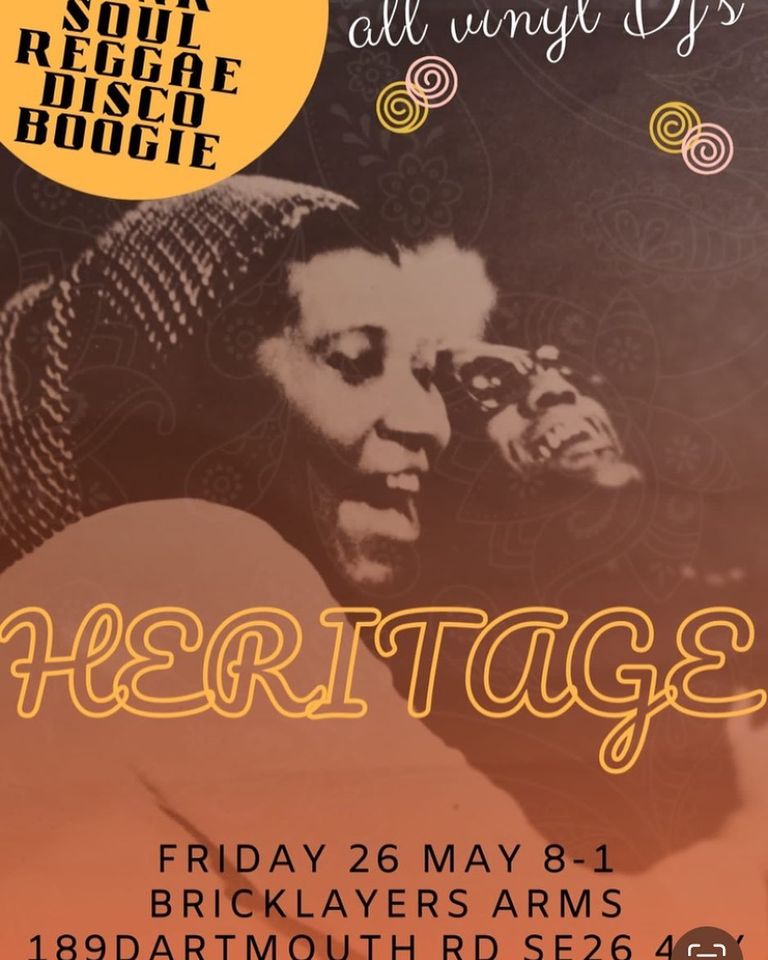
Heritage gig poster
In November 2022, SS0#8 brought together elders and youngers from the sound system world for a reasoning session. Initial divisions (such as a perceived lack of respect and understanding of past struggles on the part of some elders, and a feeling that some elders were being unhelpful on the part of some youngers) were bridged in the afternoon when the youngers demonstrated their commitment to conveying a conscious message and the elders offered guidance and support. Five months later, it felt like a significant moment when the generations came together again to view film rushes of the previous event and share ideas about how to preserve vast record collections and keep the culture alive.
Elements of the Blog Series
“We chose our name because we are all connected as friends, and because of the way music can make everyone feel connected.”
Connected Youth, a trio of teenage selectors
Over the coming months I’ll be producing a series of blogs exploring the views, experiences and plans of young people involved in reggae and sound systems. I’ll find out about their raison d’etre, and how they see their work developing. I’ll be exploring what the attraction of reggae is for young people (audiences, too), discovering what draws them to it and, in the context of the current era, what they feel it is connecting them to.
As we go deeper into the digital age, vinyl records are selling in their millions and last year outstripped CD sales for the first time in 35 years. In terms of a ‘digital disconnect’ [2] are young reggae lovers reaching out to a more tangible past, a more spiritual and ‘more real’ reality based on in-person human connection and analogue sound? And how might they be adapting both the medium and the message, to respond to current-day issues?
I aim to answer these questions by:
- Speaking to young musicians, broadcasters, selectors and sound system operators involved in reggae/sound systems in the UK.
- Exploring global youth in reggae, such as Marcus Gad and Tribe from New Caledonia (mentioned above), the Young Israelites and Monkey Sound System in India.
- Talking to elders, about their experiences, views, hopes and fears.
- Reporting on LGBTQ+ sound systems through the decades, and explore the issues for them.
- Looking at threats to reggae culture – institutional racism, lack of suitable venues, badly behaved audiences, heavy security, drugs, drunkenness and cultural ignorance.
- Finally, I’ll address resolution and ways forward. I’ll bring things up to date with thoughts on how we can ensure that today’s blossoming roots and culture scene survives and thrives.
“Through life, all young people need a vision, a path and a sense of direction,” says Tudor Rees, 31, who established the Creation Rebel Sound System in 2018. Like many, Tudor came up through Channel One Sound System.
“Since 2008, Channel One took me in as part of their family, giving me a purpose and belonging to a positive and cultural mission,” he says.
Like the elders, today’s young operators use music as a tool of education and healing – often going on tour and into venues such as schools to inspire the youth. In these troubled times of climate crisis, war and rapid technological change, will their message of consciousness, unity and hope be the thing that carries us through?
—
Becca Leathlean is a writer and teacher with a long-term love of roots reggae. She returned to London in July 2022 to take up opportunities as a vinyl DJ and to present a world-reggae radio show.
References
[1] Video clip courtesy of Reggae Man Stan.
[2] See, for example, Kiberd, R (2021). The Disconnect: A Personal Journey Through the Internet. Serpent’s Tail.
Deptford Dub Club Photos courtesy of Soft Wax and Mikey RAV.
